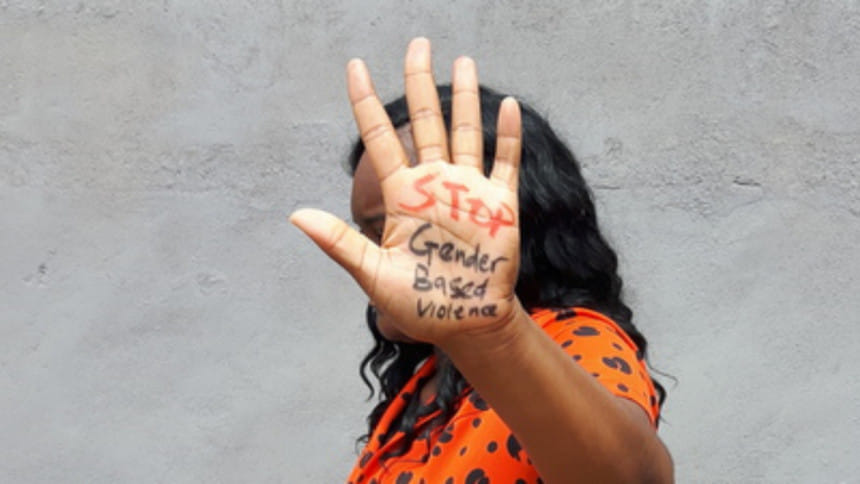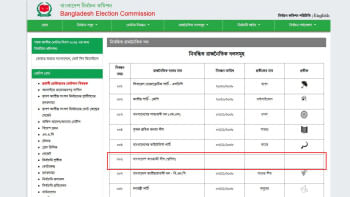Breaking harmful taboos in society

Bangladesh has been witnessing an alarming rise in rape cases, particularly child rape cases. Between April and June this year, child rape cases increased by 102 percent from the previous quarter; the number of child rape cases filed so far in 2019 is around 500. This makes me wonder whether men are becoming more violent or just switching over to children as they are more vulnerable and easier to target.
It is difficult to register that the number of rape incidents has increased from the past. For the longest time, the attitudes of men towards women in the country have been disrespectful. Women cannot walk on the streets without being ogled at or groped. With the rise of the global #MeToo movement that led to an increased awareness on victim-blaming, an increased number of women are now speaking up against sexual abuse. Therefore, the rise in figures of rape incidents might just be reflecting that more women are reporting rape compared to before. The alarming increase in child rape incidents might also be related to that: as more women are now willing to speak out against sexual violence, perpetrators see them as less vulnerable, and as such, they target innocent children and disabled girls who are easier to silence.
With rape news frequently hogging the headlines, there is an increased fear among parents who have daughters. Regular instances of rape crimes are being interpreted to mean that women/girls need to be on high alert all the time. Haven't parents of daughters always been careful regarding their daughters' safety in Bangladesh? Women are warned to dress conservatively, stay indoors, not to venture out at night or travel alone. Women in Bangladesh have been practising these safety measures for ages, and still continue to do so in 2019. So when someone says "be safe", women don't know what else they can do to protect themselves.
Why should women have to do all this just to be safe? In the 21st century, why do women have to constantly worry about keeping themselves and their baby daughters safe? Why isn't anything being done to ensure that women can live their lives freely and not always have to worry about their safety?
Instead of telling women to be more careful, why don't we tell parents and teachers to initiate appropriate sex education in order to nurture good attitudes among boys and men? Why don't we make sex education compulsory in school curricula?
The real problem in Bangladesh is that "sex" and "sexuality" are treated as taboos. We can't talk about it—we pretend that these subjects don't exist. Lack of sex education coupled with a patriarchal culture leads to sexual frustration, often turning men into monsters. Instead of solving the real problem, we try to "tackle" rape culture by saying: "Be careful girls," or "Parents with girls should be more careful."
It's rape culture when women walk on the streets and are constantly ogled and face unsolicited touching (even when they're totally covered).
Young men in Bangladesh grow up in a patriarchal environment with little or no sex education. In rural areas and single-sex schools, boys have very little contact with female peers after reaching puberty. Differences in gender roles intensify during adolescence when boys enjoy new social privileges reserved only for men such as autonomy, mobility, opportunity, and power, whereas girls have to start enduring restrictions. Their parents curtail their mobility, monitor their interactions with males and, in some cases, even withdraw them from school. This leads to misdirected masculinity, characterised by male sexual dominance and unequal gender attitudes and behaviour.
This is why Bangladesh is in dire need of comprehensive sex education with modules focusing on sexual violence awareness. Such lessons can help empower young people by uplifting women's roles in society. Importantly, they can also provide a safe space to address distorted views of masculinity and create awareness about violence against women.
A comprehensive curriculum-based "sexuality education", such as the one launched by Unesco in 2018, can help young boys and girls understand their bodies and the age-related changes better. And it can also teach young people about consent and respecting each other's personal space. According to the Unesco website, "CSE (comprehensive sexuality education) is not just about sex. It is about relationships, gender, puberty, consent, and sexual and reproductive health, for all young people." Sexuality education should also be a space to learn about menstruation, sexual intercourse, sexually transmitted diseases and risks of pregnancy.
In 2015, New Zealand released a new curriculum policy document for sexuality education in all schools. This policy is a rare example of a curriculum document that explicitly values diversity and promotes inclusive school environments. Students also need to be taught to critically think and learn about sexuality and all that it encompasses.
In other words, sexuality education is more than just talking about sexual intimacy. It includes reproductive health, sexually-transmitted diseases, contraceptives, consent, gender identity, gender equality and self-worth—all of which are important themes when addressing sexual violence. Parents should also be involved in this process; research findings emphasise the importance of children witnessing positive and equitable gender roles at home.
Maliha Ahmed is a PhD candidate in Economics at University of Illinois at Chicago, USA.
Follow The Daily Star Opinion on Facebook for the latest opinions, commentaries and analyses by experts and professionals.
To contribute your article or letter to The Daily Star Opinion, see our guidelines for submission.

 For all latest news, follow The Daily Star's Google News channel.
For all latest news, follow The Daily Star's Google News channel. 



Comments